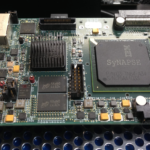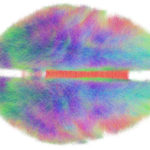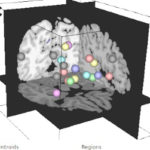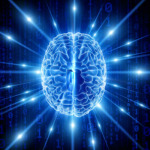 Neuroscientists can now explore a beta version of the new Neurodata Without Borders: Neurophysiology (NWB:N 2.0) software and offer input to its developers. The 2.0 software was developed by Berkeley Lab Computational Research Division’s (CRD’s) Oliver Ruebel and Andrew Tritt, in collaboration with Kristofer Bouchard (Biological Systems & Engineering Division, pictured), Loren Frank and Eddie Chang (UCSF), and the broader Neurodata Without Borders community. Read more on CRD’s website.
Neuroscientists can now explore a beta version of the new Neurodata Without Borders: Neurophysiology (NWB:N 2.0) software and offer input to its developers. The 2.0 software was developed by Berkeley Lab Computational Research Division’s (CRD’s) Oliver Ruebel and Andrew Tritt, in collaboration with Kristofer Bouchard (Biological Systems & Engineering Division, pictured), Loren Frank and Eddie Chang (UCSF), and the broader Neurodata Without Borders community. Read more on CRD’s website.
Brain-Inspired Chips for Big Data Science
With funding from the Department of Energy’s (DOE’s) Laboratory Directed Research and Development (LDRD) program, Berkeley Lab researchers from the Computational Research Division (CRD) and the Biosciences Area are collaborating to explore how brain-inspired computer chips might benefit science.
Brain Initiatives Generate Tsunami of Neuroscience Data
Around the world, various ‘Brain Initiatives’ are generating a tsunami of neuroscience data. But without a coherent strategy to analyze, manage and understand the data, advancements in the field will be limited. That’s why Kristofer Bouchard, research scientist in Biological Systems & Engineering Division, assembled an international team of interdisciplinary researchers to develop a plan to overcome the big data challenge. Read more at the Computational Research Division News Page.
Brain Modulyzer Provides Interactive Window Into the Brain
For the first time, a new tool developed at Berkeley Lab allows researchers to interactively explore the hierarchical processes that happen in the brain when it is resting or performing tasks. Scientists also hope that the tool can shed some light on how neurological diseases like Alzheimer’s spread throughout the brain.
The software, called Brain Modulyzer, was created by researchers in the Computational Research Division and Kris Bouchard from the Biological Systems & Engineering Division in conjunction with computer scientists at University of California, Davis (UC Davis) and with input from neuroscientists at UC San Francisco (UCSF). The software combines multiple coordinated views of functional magnetic resonance imaging (fMRI) data—like heat maps, node link diagrams and anatomical views—to provide context for brain connectivity data. For more, read the press release by Linda Vu at the Berkeley Lab News Center.
BRAIN Neuro-Workshop Report Now Available
The report on the multi-institutional Neuro-Workshop held June 2, 2016 at Berkeley Lab (LBNL) is now available. The workshop was convened to discuss relevant technological capabilities for the national Brain Research through Advancing Innovative Neurotechnologies (BRAIN) Initiative. Participants also explored collaborative opportunities that would address neuroscience “grand challenges” in support of the Department of Energy (DOE) contribution to BRAIN and other national scientific challenges.
Was this page useful?







